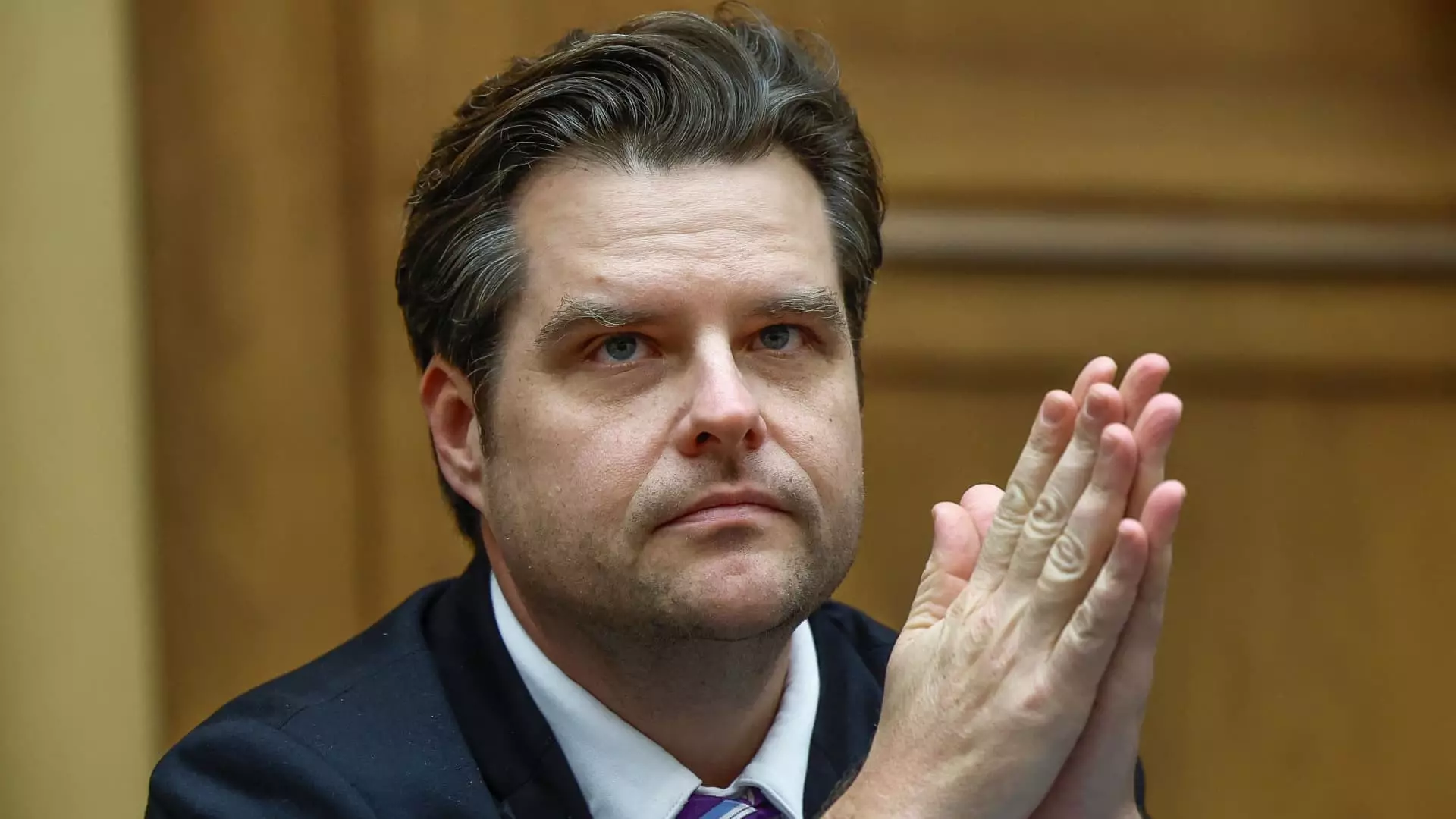The recent House Ethics Committee report has undeniably sent shockwaves through the political landscape, particularly bearing down on former Congressman Matt Gaetz. The findings, which assert that Gaetz engaged in illicit activities—including sleeping with a minor and soliciting sex—paint a highly disturbing picture of his conduct during his tenure in Congress. This article takes a critical look at the implications of these revelations, the political ramifications they bear, and the broader context in which Gaetz’s actions unfolded.
The Ethics Committee’s report unequivocally cites “substantial evidence” indicating that Gaetz had sexual relations with a 17-year-old girl back in 2017 and suggests that he systematically paid for sex while holding public office. Such actions fundamentally undermine the integrity expected from an elected representative. The notion that someone in a position of power could consistently engage in behavior that is not only morally questionable but also illegal raises pressing concerns about accountability within political institutions. The committee’s conclusion that Gaetz accepted numerous gifts and utilized illegal drugs further compounds the alarming portrait of a man prioritizing personal pleasures over his responsibilities to society.
One particularly troubling revelation is that Gaetz allegedly paid women tens of thousands of dollars in a series of transactions connected to sexual activities or drug use. This raises critical ethical and legal questions about the behavior of public officials. The expectation for lawmakers is to set an example for their constituents, particularly regarding ethics and lawfulness. By violating these principles, Gaetz was not merely creating a personal scandal; he was undermining public trust in the office he held.
Interestingly, while the report highlighted numerous ethical violations, it did not provide sufficient evidence to substantiate a violation of federal sex trafficking laws—an important legal distinction. The committee found that although Gaetz “did cause the transportation of women across state lines for purposes of commercial sex,” there was no definitive proof that these women were minors at the time of transportation. However, the existence of such allegations alone can tarnish the reputation of a politician and erode public confidence in governmental processes.
The report also indicates Gaetz had a concerning pattern of behavior: he allegedly had sex with the then-17-year-old at a party, a fact corroborated by the victim’s own testimony and financial exchanges on that fateful night. The identification of the victim as “Victim A” adds a chilling anonymity to her account, but it also underscores the deeply troubling nature of the events that transpired. Regardless of his assertions, the investigation clarified that statutory rape laws apply indiscriminately and enforce strict liability.
Political Consequences and Fallout
The report’s arrival coincided with a tumultuous time for Gaetz, who had resigned from his congressional position mere days before its release, as he sought a role in President Trump’s administration as U.S. attorney general. This transition itself highlights a scenario rife with conflict—one that could potentially risk Trump’s nascent administration’s credibility. Following Gaetz’s resignation, his eligibility for congressional oversight fundamentally shifted the Ethics Committee’s authority over him; however, pressure from media scrutiny and a bipartisan consensus ultimately led to the decision to publicize the committee’s findings.
In a wider context, Gaetz’s situation is emblematic of the challenges faced within political spheres—especially those that involve significant power dynamics and potential abuses thereof. His dilemma reflects an ongoing concern about the vetting processes for political candidates. The contents of the Ethics Committee report could have lasting ramifications as senators grapple with evaluating the credibility of other Trump nominees based on Gaetz’s checkered past.
Reflection on Public Integrity
The findings of the Ethics Committee depict a cautionary tale regarding public integrity and the responsibilities that come with elected office. The allegations against Gaetz underscore a broader crisis—a fundamental breach of trust that challenges the essential rights and dignities of those whom lawmakers represent. As we reflect on these issues, it becomes crucial for voters and politicians alike to advocate for a culture of accountability that can deter such behavior.
The call for stronger ethical standards and systemic reform in how allegations against lawmakers are investigated is louder than ever. An investigation like the one led against Gaetz should not be seen merely as a response to personal failings; rather, it serves as an essential mechanism for ensuring that individuals in power cannot act above the law. In grappling with these complex questions, we must strive towards a political future that prioritizes ethical conduct, enforcing strict consequences against those who violate public trust.

Leave a Reply